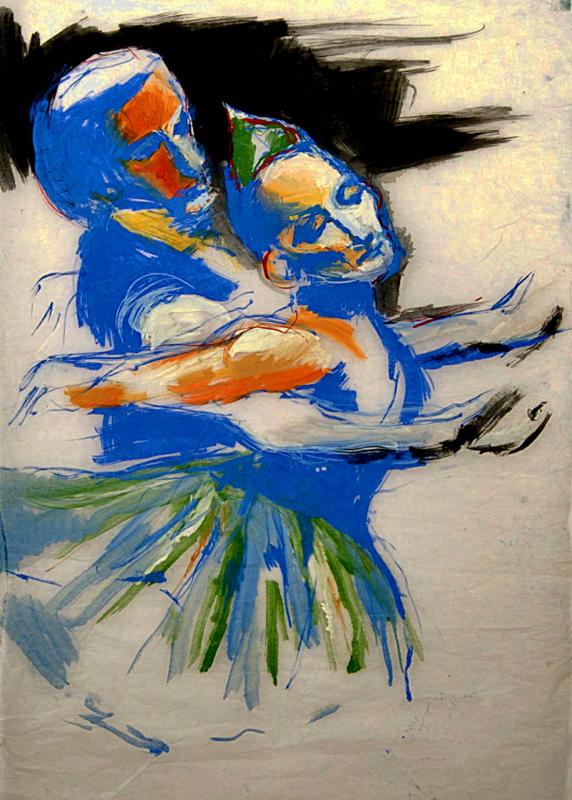Drama and poetry are rooted in each other — the physical stage of drama mirrors the cognitive stage of poetry; drama, as much as poetry, relies on lyricism to create its effect. The greatest modern dramatists — Chekhov and Beckett — while not explicitly verse dramatists, are at moments almost overwhelmingly lyrical. A play by Beckett, for example, converts the stage into a poetic domain — even if the poetry expressed is one of bitter and almost cosmic disappointment. Endgame bears more resemblance to King Lear than it would to any contemporary realist drama; its language, through a massive contortion of ordinary usage, creates a self-contained, self-sustaining world of believable human pathos — an aesthetic effect which is the condition of all great western drama going back to the ancient Greeks.
Even in a realistic, colloquial dialogue, some covert reliance on intense, memorable language is necessary for the drama to rise to the level of art. A play in prose by Ibsen or Tennessee Williams, or a prose-screenplay by Bergman or Terrence Malick are not anymore realistic or conventional than a work of Elizabethan verse-drama; there are degrees to which we feel familiar with the language of drama, but this difference in degree does not indicate a difference in kind. In all cases, the language of drama must be condensed and intensified from that of life.
The short dramatic work in this issue, Stones, by Karl Neumann, is a play that operates, structurally, on the primitive level on which poetry and drama are most similar. In Stones, three unnamed soldiers, presumably in the First World War, wait below the first step of a trench, prepared to charge. Their dialogue, we are lead to imagine, is really internal. The mind of soldiers on the verge of almost certain death is, Neumann seems to suggest, a poetic, lyrical mind. The shortness of this one-act drama mirrors the last moments of the soldiers’ lives. Each soldier is obsessed by a few elements, the most important vestiges of consciousness. In a longer drama, outside the theater of war, they may have been fully drawn characters, but war has reduced them, stripped them to their essential elements.
Drama, however it is ultimately structured and performed, is necessarily a poetic performance. It is, in an important sense, an externalization of that inner, cognitive theater on which all poems must play. Stripped of its poeticism, the discipline of drama is stripped of its enchantment — stripped, one might even say, of its drama.

